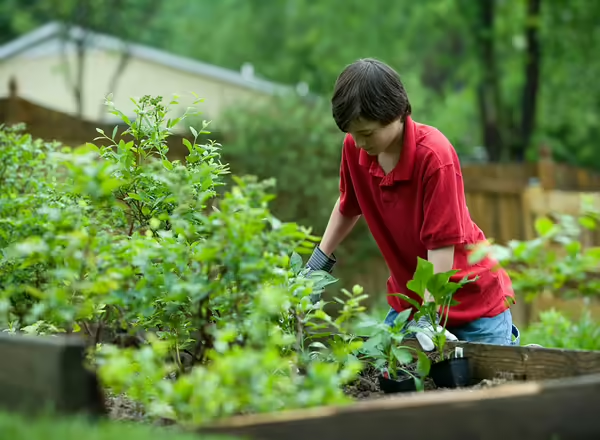Learn and Grow with Youth Garden Projects
Grow kids while you grow plants
Youth gardens serve as living laboratories for exploration, generate curiosity of the natural world and provide exercise and exposure to healthy eating habits. With a bit of effort, your organization could build a successful garden for youth education. Consider all the places you can begin to plant youth-centered learning gardens: schools, community centers, libraries, and faith-based sites.
A garden can be as simple as containers, raised beds, or more elaborate to include edible spaces, trees, and native gardens to support pollinators. A school garden is a great place to learn-by-doing and can be used to meet Next Generation Science Standards. When working with school gardens, teachers, parents, administration, and students, should help to plan and support the garden.

Make journaling part of your garden project. Include drawings and pictures of your garden and you in your garden. You may even want to include pressed flowers or leaves. Your garden journal will become a snapshot of a particular day and all those days put together give you a picture of your exciting garden year.

Grow veggies and flowers you like. Look through garden catalogs and cut out favorite vegetables and flowers. Start with crops that quickly mature. These include cool season crops like lettuce, radish, green onion, and kale. Good choices for warm season crops are bush bean, pepper, tomato and zucchini.
Choose easy-to-grow flowers like alyssum, snapdragon, marigold, zinnia, cosmos, and sunflower. Additionally, many herbs are easy to grow, and the bonus is that they support pollinators. Start your pollinator garden today using tools on our website.
Bring the garden into the schoolyard with our online School and Community Gardens Self-Paced Learning Modules. A school garden can be many things, from a pollinator garden, to a sensory garden, or a bulb garden. Our online learning modules focus on vegetable gardening while we take you on a...